Premium Only Content

John Rambo: From Soldier to Cult Classic Hero
Few characters in film history have left as indelible a mark as John Rambo, the iconic war hero from Rambo: First Blood. Played by Sylvester Stallone, Rambo is more than just an action figure—he's a symbol of the internal and external battles faced by war veterans, particularly those returning from the horrors of the Vietnam War.
But what turned this character into such a cult classic?
What does Rambo teach us about the mistreatment of veterans and the psychological scars, like PTSD, that they carry?
And how did a man who just wanted to be left alone end up as a symbol of survival, resilience, and justice?
Rambo’s Backstory: A Soldier Forgotten
John Rambo is a former Green Beret and Vietnam War veteran. A skilled and highly trained soldier, he served his country honorably in the toughest and most brutal conditions. But when Rambo returns home from war, he doesn’t find gratitude or respect. Instead, he faces prejudice, hostility, and indifference. The America he fought for seems to have turned its back on him, and the local authorities treat him like a vagrant rather than a hero.
Is this the story of all veterans?
Was Rambo’s experience an isolated case, or was it reflective of the wider societal attitude towards Vietnam vets?
First Blood asks these questions without giving easy answers. But the film’s depiction of Rambo’s mistreatment highlights a real issue—one that resonated deeply with audiences when the movie was released.
Rambo is a Vietnam War vet who returns to a country that no longer appreciates him. He’s met with hatred and prejudice by the local authorities, sparking his inner struggle.
Have you ever considered how we, as a society, treat our returning veterans?
The Awareness of PTSD: Rambo’s Battle Within
First Blood is often hailed for its intense action scenes, but beneath the bullets and explosions lies a poignant portrayal of post-traumatic stress disorder (PTSD). John Rambo doesn’t just fight external enemies; he fights internal demons. His flashbacks, emotional outbursts, and uncontrollable rage all point to the psychological wounds left by the war. And while PTSD wasn’t as widely understood when the film first came out, First Blood brought the issue to the forefront of popular culture.
How do you think Rambo’s struggle with PTSD reflects the reality faced by countless veterans?
Could the movie have played a role in increasing awareness about this condition?
Rambo suffers from severe PTSD, as shown through his flashbacks and emotional breakdowns. First Blood was one of the first mainstream films to depict PTSD in a sympathetic and powerful way.
What would you do if someone you knew was silently battling PTSD, like Rambo?
What could we as a society do to support them?
Rambo: A Symbol of Survival and Justice
Rambo’s transformation from a quiet, wandering veteran into an unstoppable force of nature is one of the key reasons he became a cult classic. But what is it about Rambo that resonates so deeply with audiences?
Is it his ability to overcome impossible odds?
His refusal to be defeated by a system that betrayed him?
Or is it simply his unrelenting quest for justice in a world that has wronged him?
Rambo embodies the fight for survival, justice, and personal honor.
His ability to fight back against authority makes him a symbol of resistance.
How do you feel watching Rambo push back against an unjust system?
Does his story inspire you to stand up for yourself, or to question authority?
See the complete review at New Texas Republic - https://newtexasrepublic.com/john-rambo-from-soldier-to-cult-classic-hero/
-
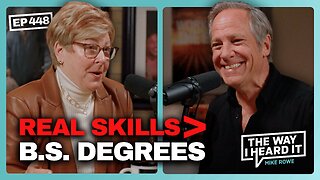 1:06:17
1:06:17
Mike Rowe
16 hours agoThe Mastermind Behind THIS Radical Idea At WSU Tech | Sheree Utash #448 | The Way I Heard It
5.2K4 -
 LIVE
LIVE
Bannons War Room
6 months agoWarRoom Live
8,048 watching -
![Mr & Mrs X - [DS] Trafficking Empire – How Epstein Built His Web of Wealth and Deceit:Part 1 - Ep 5](https://1a-1791.com/video/fww1/f0/s8/1/o/k/J/d/okJdz.0kob-small-Mr-and-Mrs-X-DS-Trafficking.jpg) 52:11
52:11
X22 Report
2 hours agoMr & Mrs X - [DS] Trafficking Empire – How Epstein Built His Web of Wealth and Deceit:Part 1 - Ep 5
9.65K5 -
 1:13:18
1:13:18
Wendy Bell Radio
6 hours agoPet Talk With The Pet Doc
28K51 -
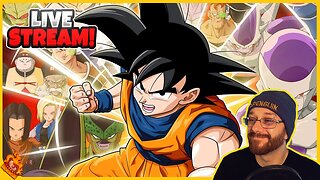 LIVE
LIVE
BBQPenguin_
3 hours agoDragonball Z - The Android Saga
236 watching -
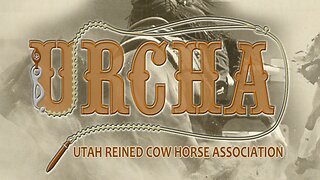 LIVE
LIVE
Total Horse Channel
3 hours ago2025 URCHA Futurity | Derby & Horse Show | Saturday
68 watching -
 LIVE
LIVE
DynastyXL
3 hours ago🔴LIVE: Fortnite The Comeback Stream Starts Here🎃
74 watching -
 1:38:57
1:38:57
njgaming23
1 hour agoCoffee and Morning vibes #rumbletakeover
32 -
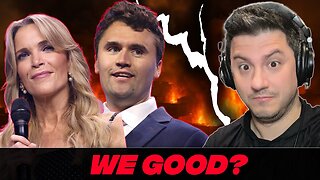 1:09:19
1:09:19
Ami's House
1 day ago $16.03 earnedWhen Defending Israel Backfires: Are We Pushing Our Last Friends Away? With Karys Rhea
167K169 -
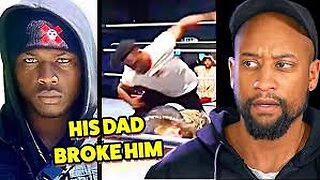 8:13
8:13
WhaddoYouMeme
19 hours ago $0.99 earnedThis Gets More Tragic By The Second
4.86K9